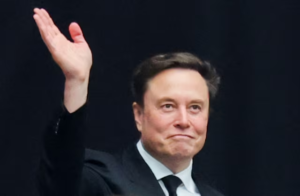In a move that could reshape the geopolitical landscape, Iranian Foreign Minister Abbas Araghchi arrived in Oman on Saturday for highly anticipated nuclear discussions with U.S. representatives. According to Iranian state media, Araghchi first met with Omani officials to set the stage for the critical negotiations.
This rare dialogue between Iran and the United States will be spearheaded by Araghchi and U.S. President Donald Trump’s Middle East envoy, Steve Witkoff. The meeting marks the highest-level engagement between the two nations since the U.S. withdrew from the landmark 2015 nuclear agreement during Trump’s first term.
The stakes could not be higher. President Trump has made it clear: if Iran refuses to come to terms, military action remains firmly on the table.
Iran Seeks “Fair and Honourable” Terms
Speaking on Saturday, Araghchi underscored Iran’s commitment to diplomacy — but only from a position of equality.
“Our goal is to achieve a fair and honourable agreement,” Araghchi stated. “If the United States approaches the talks from the same stance, we believe there is a real opportunity to reach a preliminary understanding that could open the door to broader negotiations.”
His comments echo sentiments expressed by senior Iranian leaders, including Ali Shamkhani, a key advisor to Supreme Leader Ayatollah Khamenei. Shamkhani reiterated on X (formerly Twitter) that Iran is prepared with “important and implementable proposals,” adding that a spirit of goodwill from Washington would smooth the path forward.
Muscat: The Neutral Ground for Delicate Diplomacy
Oman, with its history of quiet diplomacy between Iran and Western powers, once again plays a central role as mediator. Negotiations are scheduled to commence in the afternoon, with Omani Foreign Minister Badr bin Hamad Al Busaidi acting as the key intermediary.
According to reports from Iran’s Tasnim news agency, after initial meetings with Busaidi, the Iranian and American delegations will enter indirect talks — a cautious but significant step toward potential reconciliation.
Trump’s Message: Prosperity, But No Nukes
Just hours before the talks were set to begin, President Trump made a pointed statement aboard Air Force One.
“I want Iran to be a wonderful, great, and happy country,” he said. “But they absolutely cannot have a nuclear weapon.”
The Trump administration’s stance remains firm: while it is open to a new deal that would allow Iran to maintain a civilian nuclear program, it insists on robust safeguards to ensure Tehran cannot develop atomic weapons.
High Risks on Both Sides

If these negotiations fail, the consequences could be dire. Tehran has hinted that it might expel United Nations nuclear inspectors, a move Washington has warned would constitute a serious escalation.
The shadow of the abandoned 2015 Joint Comprehensive Plan of Action (JCPOA) looms large. That agreement had been designed to prevent Iran from acquiring nuclear weapons capability while allowing it to pursue peaceful nuclear energy. Its collapse has since fueled rising tensions across the Middle East.
A Critical Crossroads for Global Stability
As the world watches closely, the outcome of the Muscat talks could either mark the beginning of a new diplomatic chapter or further entrench the hostility that has long plagued U.S.-Iran relations.
With both sides expressing a cautious willingness to engage — but from positions deeply entrenched in national pride and security concerns — the coming days will reveal whether diplomacy can triumph over discord.
Stay tuned for real-time updates as this historic dialogue unfolds.




